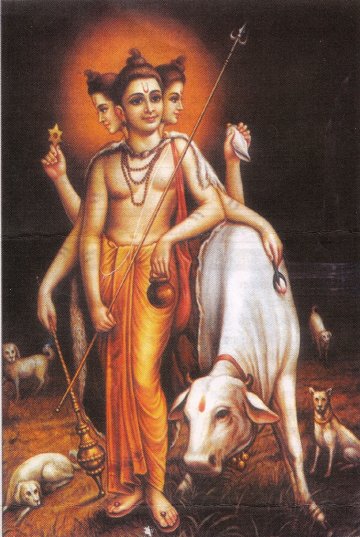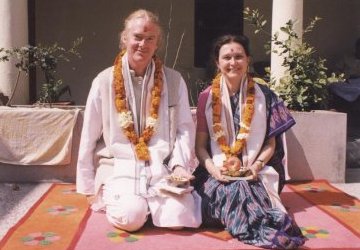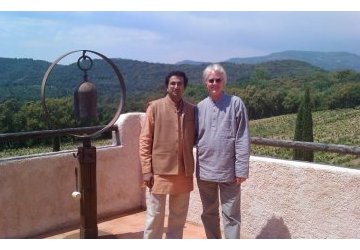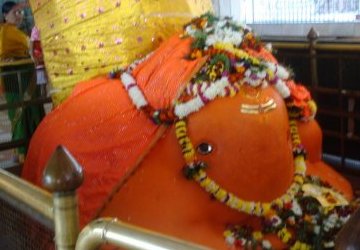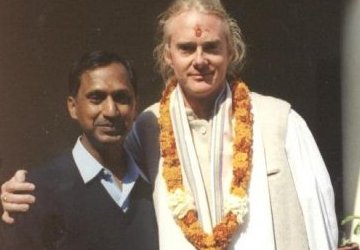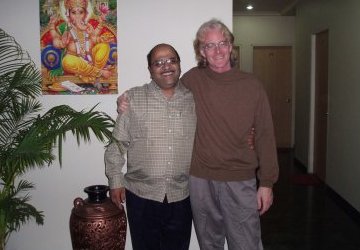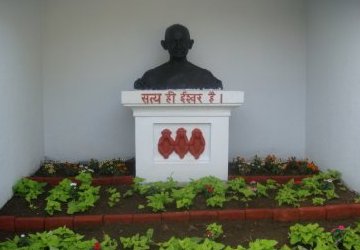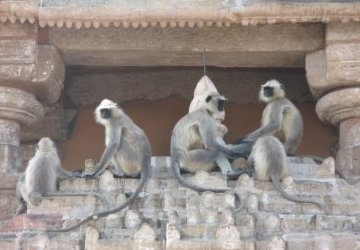The Mind is not a problem
The Avadutha Gita has been one of my favorite books for more than 25 years.
Why am I posting this chapter Five of the Avadutha Gita from Dattatreya? There are many paths in the Indian tradition are based on control of the mind & body. The Avadutha Gita is presenting a radically different approach – convincing the mind that it is also part of the substratum, pure consciousness, or Bahaman. The Advaita method is to repeat the same truth over and over again, hence Dattatreya is convincing the mind that it does not need to fear, it does not need to fight, resist or react, it can – gently – disappear into its own source, pure consciousness. This method of befriending the mind and understanding that it also a manifestation of the Self and is therefore not to be controlled; it is to loved and guided back into its own source. Thus, each sutra repeats: “Being the very same Brahman, O mind, why do you weep?”
Avadhuta Gita: Chapter Five
1. The all-pervading Brahman has been expressed by the syllable OM. Brahman cannot be ascertained by higher or lower knowledge (any form of knowledge). Brahman cannot be ascertained in the manifest or non-manifest. Hence, how can the syllable OM express Brahman? (in other words it is before all forms of manifestation)
2. The Upanishads declare that your innermost Atman is the only Reality. You are the all-embracing Sameness, devoid of all attributes. Being the very same Brahman, O mind, why do you weep?
3. The all-encompassing Brahman is devoid of below and above, interior and exterior. Brahman cannot be described as One. Being the very same Brahman, O mind, why do you weep?
4. Brahman cannot be discerned by following prescribed rules and rituals. Brahman cannot be examined through cause and effect. Brahman is bereft of modulated words and pleasing sounds. Being the very same Brahman, O mind, why do you weep?
5. Brahman is not the union of consciousness and unconsciousness. Brahman is not the meeting point of inner space and outer space. Brahman is not the merging of time and timelessness. Being the very same Brahman, O mind, why do you weep?
6. Brahman is neither the jar-space nor the jar. Brahman is neither the body of the individual soul nor the individual soul (Jivatman) itself. Brahman is beyond the relationship of cause and effect. Being the very same Brahman, O mind, why do you weep?
7. The all-pervading Brahman is freedom Itself. The divisions of the short and long, circular and angular are absent in It. Being the very same Brahman, O mind, why do you weep?
8. Brahman is neither void nor non-void. Brahman is neither pure nor impure; neither all nor none. Being the very same Brahman, O mind, why do you weep?
9. Brahman cannot be discerned as divided or undivided. Brahman has no outside or inside or junction of the two. Brahman is equal to all and bereft of enemy and friend. Being the very same Brahman, O mind, why do you weep?
10. In Brahman there is no differentiation between one who is a disciple and one who is not. In Brahman there is no differentiation between moveable and immoveable. The all-pervading Reality is liberation Itself. Being the very same Brahman, O mind, why do you weep?
11. Brahman is bereft of form and formlessness. Brahman is neither divided nor undivided; It is free from creation and destruction. Being the very same Brahman, O mind, why do you weep?
12. Since I am not bound by the shackles of good and evil qualities, how can I be involved in the actions of the living and dying? Truly, I am the pure, unclouded, all-pervading Reality. Being the very same Brahman, O mind, why do you weep?
13. Brahman is free from emotion and excitement, desire and desirelessness. This highest Consciousness is identical with liberation. Being the very same Brahman, O mind, why do you weep?
14. The true nature of Brahman is eternal Reality Itself. It has neither union nor separation. Though Brahman stands aloof from all, yet It pervades all equally. Being the very same Brahman, O mind, why do you weep?
15. Brahman pervades equally the open space, the home and the family. The Supreme Reality has neither attachment nor detachment, neither knowledge nor ignorance. Being the very same Brahman, O mind, why do you weep?
16. The universe, which is the transformation of the immutable Brahman, is unreal and all phenomena of the invisible Brahman are unreal. The Atman alone is the Reality. Being the very same Brahman, O mind, why do you weep?
17. Truly, Brahman is identical with the individual soul. It pervades equally all living beings and immoveable things. Being the very same Brahman, O mind, why do you weep?
18. It I senseless to discriminate about Brahman, which is beyond thought. It is sheer ignorance to see variety in unity. Brahman is truly uninterrupted consciousness. Being the very same Brahman, O mind, why do you weep?
19. Brahman is not a state of freedom or bondage, not a state of virtue or vise, not a state of fullness or emptiness. Being the very same Brahman, O mind, why do you weep?
20. Indeed, the omnipresent Brahman is devoid of caste and outcaste. It is free from cause and effect, unity and diversity. Being the very same Brahman, O mind, why do you weep?
21. Brahman, the absolute consciousness, pervades all living beings as well as inanimate objects. And again, Brahman shines of Itself, devoid of men and other beings. Being the very same Brahman, O mind, why do you weep?
22. The omnipresent Brahman is beyond all, and again, It pervades all equally. It is exceedingly pure and tranquil. It exists without day and night. Being the very same Brahman, O mind, why do you weep?
23. Bondage and freedom, union and separation, reasoning and inference, and all such pairs of opposites do not converge in Brahman. Being the very same Brahman, O mind, why do you weep?
24. In Brahman the divisions of time, such as day and night, are denied. The primordial elements, such as fire and air, are also absent. But the Ultimate Reality cannot be denied. Being the very same Brahman, O mind, why do you weep?
25. Brahman does not have a body, nor is it disembodied. Indeed, Brahman has no such states as waking, dreaming and sleeping. It is beyond names and rules. Being the very same Brahman, O mind, why do you weep?
26. The all-pervading Brahman is spotless and vast like space. Brahman transcends all and It permeates all. It is present in the essential and non-essential as well as the changing. Being the very same Brahman, O mind, why do you weep?
27. Brahman is unconcerned about virtue and vice. Brahman is indifferent to wealth and poverty and free from passion and dispassion. Being the very same Brahman, O mind, why do you weep?
28. The all-pervading Brahman is free from pleasure and pain, grief and joy. In that Supreme Reality there is no guru and no disciple. Being the very same Brahman, O mind, why do you weep?
29. In Brahman there is no love-making or offspring, no strength or weakness. Brahman has neither mobility or immobility, neither equality nor inequality. It is devoid of discrimination and indiscrimination. Being the very same Brahman, O mind, why do you weep?
30. Brahman is the quintessence of all essences, and its attributes are described as being separate from Itself. Any action in the phenomenal world is unreal. Being the very same Brahman, O mind, why do you weep?
31. In various ways the Upanishads declare that the manifested elements (either, air, fire, water and earth) are like water in a mirage. Truly, Brahman alone exists equally in all things. Being the very same Brahman, O mind, why do you weep?
32. Where the intellect cannot reach, how can there be any form of composition? The great Avadhuta, after purifying himself through meditation and becoming absorbed in Infinite Bliss, has sung spontaneously about Brahman.
Copyright © 2016 Self of all being and non-being
Avadhuta Gita
